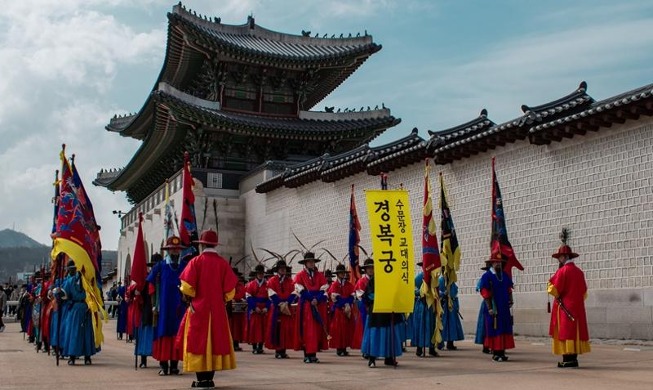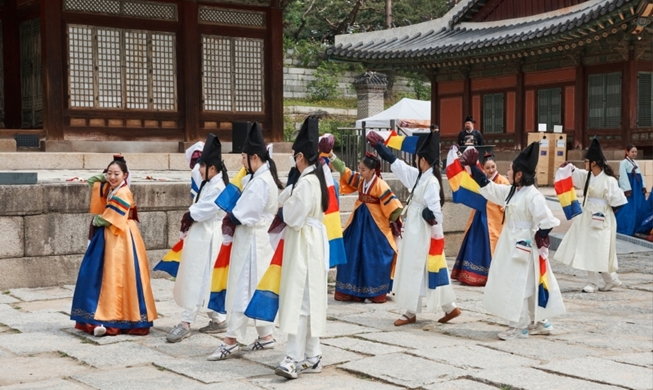-
 Korea.net's 24-hour YouTube channel
Korea.net's 24-hour YouTube channel- NEWS FOCUS
- ABOUT KOREA
- EVENTS
- RESOURCES
- GOVERNMENT
- ABOUT US
- 한국어
- English
- 日本語
- 中文
- العربية
- Español
- Français
- Deutsch
- Pусский
- Tiếng Việt
- Indonesian
As everyone knows, Hallyu, the Korean Wave, is a storm through all over the world. As a result, lots of foreigns, include Muslims, interested in and want to visit this country. Of course authorities try to satisfy the tourists regardless of their nationality and religion. And also manufacturers want to be a part of this wave to trade their products all over the world. But while doing it they should to keep in mind some religional obligations like Halal foods.
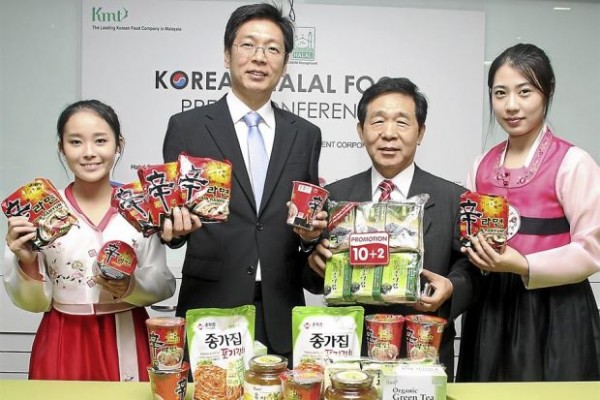
Halal Korean food: KMT managing director Matthew Lee (second from left) and managing director and Salleh (third from left) during the press conference. @Korean Halal Industry Association
It seems that, from now on we will hear “Halal” in Korea more frequently. Especially after the agreement that cooperation on the production and sale of halal food has been signed between Korea and UAE a few days ago. The food spectrum is getting wider for Muslims both who live in Korea and willing to consume Korean food in their countries.
What is Halal Food?
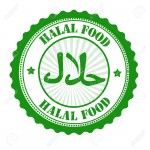
The meaning of halal (할랄) is proper and permitted and Halal foods are the foods that Muslims are allowed to eat or drink under of course Islamic Law. This law specifies that what foods are allowed and how that food must be prepared The most well-known example of non-halal, haram (하람), food is pork (돼지고기). Pork is one of the certain meat that cannot be eaten by Muslims at all but others than pork can also be haram as a result of its source, the cause of the animal’s death, and how it was processed. The products that involved of products which from pig are haram too even if it is food/cosmetic or etc. Halal food can not contain any alcohol, alcohol derivatives or traces of alcohol too.
Verses from Quran
Some of the verses about haram foods and drinks in Quran;
Sura:2 Verse:173 “He only prohibits for you the eating of dead animals, blood, the meat of pigs, and animals dedicated to other than Allah…” (verse is continued) Further details of dead animals are found in Sura:5 Verse:3 and they include those strangled, struck with an object, fallen from a height, gored, attacked by a wild animal – unless the animal is saved before it dies – and animals sacrificed on altars
Sura:2 Verse:219 “They ask you concerning alcoholis drink and gambling. Say, “In them is great sin and [yet, some] benefit for people. But their sin is greater than their benefit.” And they ask you what they ought to spend. Say, “That which is beyond your needs.” Thus Allah makes clear to you His Laws in order that you may give thought”
K-Halal
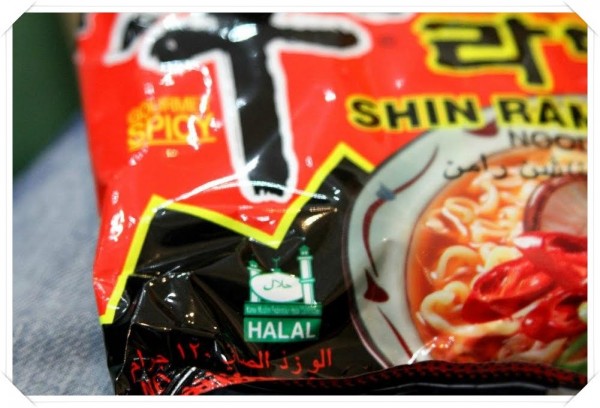
After K-pop, K-fashion, etc. now we are getting used to a new term that called K-Halal. Halal foods in Korea have increasing importance towards food manufacturers. Korean Halal Industry Association (한국할랄산업연구원), KHIA has been continue to provide halal information in Korea. Korea Muslim Federation is giving Halal Certificates to manufacturers who want to trade their products to Muslims who live in Korea and overseas. For actions to be taken you can visit KMF’s website.
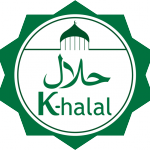
According to the article which publish on halalfocus.com on 01/13/2015 Korean Companies that Nongshim, CJ CheilJedang, Our Home, Daesang etc. won halal certificate for some of their products. About 87 kinds of Korean snacks are halal certified. These snacks include Pepero, chocolate-coated bread sticks, and the nutty flavored Corn Snacks by Lotte Confectionery. Crown Confectionery also won halal certification for its Kuk He, a chocolate-creamed cookie. Choco Pies, made by the Orion Group, substituted plant components for pork-based gelatin in order to get halal certification. This examples can be increased. Not too long but a few months ago Korea Tourism Organization has published a book named Muslim Friendly Restaurants in Korea. You can find Halal Restaurants in Seoul and all over the Korea in this book.
The spring and then the summer is approaching, they said that people should visit Korea in this period of seasons. If you want to go but have some doubts about foods then be sure of both authorities and companies try to provide more opportunities for Muslim tourists. Do not forget download the guidebooks of KTO.
So I hope we can get have a chance to go Korea this year, as soon as possible of course.
By Sinem Betul for the Korea Blog




